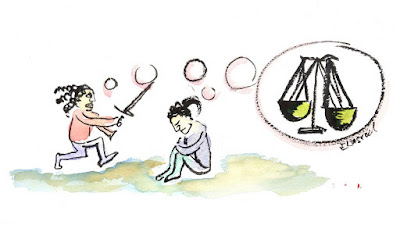>
Ok, so normally, I hold a fair share of skepticism against everything signed Paulo Coelho.
You know – the bestseller writer who’s recipe for happiness is to “seek the truth in the desert” (The Alchemist) – however, when I stumbled across this list “Inventory of Normality” on his blog (Thanks, Cris) several of its items spoke to me.
Really, how did these things ever become normal?
3] Spending years at university and then not being able to find a job.
7] Trying to be financially successful instead of seeking happiness.
9] Comparing objects like cars, houses and clothes, and defining life according to these comparisons instead of really trying to find out the true reason for being alive.
24] Using all possible means to show that even though you are a normal person, you are infinitely superior to other human beings.
40] Avoiding depression with massive daily doses of television programs.
However, it is also interesting to see that certain things are just soo tied to geographic places/cultures – eg. would this happen in Ghana?:
5] Retiring only to discover that we have no more energy to enjoy life, and then dying of boredom after a few years.
H3! In Ghana, live after 70 is sweet-o.
25] In any kind of public transport, never looking straight into the eyes of the other passengers, as this may be taken for attempting to seduce them.
Haha, seduction is a constant part of public life including transport in Ghana! Why avoid starting it?
26] When in an elevator, looking straight at the door and pretending you are the only person inside, however crowded it may be.
In Ghana, in the few elevators I’ve been, you’ll politely say “Good morning/afternoon/evening” and then maybe chat the person up, see above!
27] Never laughing out loud in a restaurant, no matter how funny the story is.
Oh, every story is funny in a restaurant in Ghana! “Chale, serious? hahaHAHAHA!”
Anyways, this time I can still recommend Paulo Coelho.
Pic: A serious trotro where people do look each other in the eye.
 My friend Andreas is trying out life on a old-fashioned farm (well, minus the snow mobile and the website) in mid Sweden 7 km from nearest road and he writes beautifully about his experiences. The blog Silverjonglerier is in Swedish, but even if you can’t read it I recommend it for the beautiful, snowy pictures.
My friend Andreas is trying out life on a old-fashioned farm (well, minus the snow mobile and the website) in mid Sweden 7 km from nearest road and he writes beautifully about his experiences. The blog Silverjonglerier is in Swedish, but even if you can’t read it I recommend it for the beautiful, snowy pictures.


![Reblog this post [with Zemanta]](http://img.zemanta.com/reblog_e.png?x-id=80328981-150b-4871-b455-cf4a87368c9f)

![Reblog this post [with Zemanta]](http://img.zemanta.com/reblog_e.png?x-id=a64b3a6f-b80d-414a-86c5-bfd47ae014fa)

